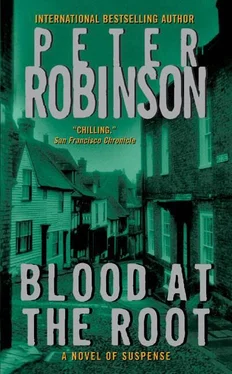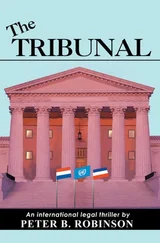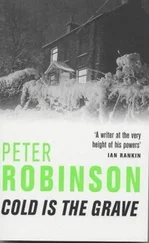For the first time, he found himself wondering if Sandra wasn’t, perhaps, right. Maybe they both did need a little time to maneuver and regroup after all the changes of the past few years, especially Sandra’s new and more demanding job at the gallery, and the loss of the children.
Not children now, Banks reminded himself. Grown-ups. He thought back to that evening in the Pack Horse only a few days ago, when he had watched Tracy with her friends and realized he couldn’t cross the lounge to be with her; then he remembered a telephone call he had once made from Weymouth to his son in Portsmouth, realizing then for the first time how distant and independent Brian had become.
Well, there was nothing he could do about it. Any of it. Except to make damn sure he kept in touch with them, helped them the best he could, became a friend and not a meddlesome irritation to them. He wondered how they would take the news of their parents’ separation. For that matter, who would tell them? Would Sandra? Should he?
He walked out onto Keizersgracht. The sun glinted on the parked bicycles on the quay and on the canal, making a rainbow out of a pool of oil. Reflections of trees shimmered gently in the ripples of a passing boat.
His mysterious meeting was set for eight o’clock tonight. Well, he thought, in the meantime, on a day like this, tourist map in hand, he could walk the city to his heart’s content.
“You’ve got to admit, Superintendent, that your evidence is pretty thin.”
Giles Varney, Mark Wood’s solicitor, sat in Gristhorpe’s office later that Saturday morning, staring out over the market square as he talked.
Outside, a sunny morning had brought plenty of tourists to the bustling open market, but now it was clouding over and, to Susan’s well-trained nose, getting ready to pour down before the day was out. She had already seen the gusts of wind, which would later bring the rain clouds, billowing the canvas covers of the market stalls.
Varney wasn’t a pinstripe lawyer like the one they’d had to deal with last year in the Deborah Harrison murder. He was casually dressed in jeans and a sports shirt, and his very expensive light wool jacket hung on a stand in the corner. He was young, probably not much older than Susan’s own twenty-seven, in good shape, and handsome in a craggy, outdoorsy kind of way. He looked as if he were on his way to go hang-gliding.
There was something Susan didn’t like about him, but she couldn’t put her finger on it. An arrogance, perhaps, or overconfidence. Whatever it was, it put her on her guard.
“I realize that, Mr. Varney,” said Gristhorpe, “but I’m sure you can see our predicament.”
Varney smiled. “With all due respect, it’s not my job to see your predicament. It’s my job to get my client out of jail.”
Supercilious prat, Susan thought.
“And it’s our job,” countered Gristhorpe, “to get to the bottom of Jason Fox’s death. Your client admits he was at the scene.”
“Only prior to the crime. He couldn’t have had any knowledge of what was going to happen.”
“Oh, come off it, Mr. Varney. If three kids came at you in a dark alley, I think you’d have a pretty good idea what was about to take place, wouldn’t you?”
“That’s beside the point. And since when has saving your own skin been regarded as a criminal act? Technically, my client is not guilty of any crime. I expect you to release him immediately. I trust you have the real criminals in custody?”
“On their way. Again,” muttered Gristhorpe.
Varney raised an eyebrow. “Yes, I understand you had these same chaps in custody once before and let them go?”
“Had to,” Gristhorpe said. “No evidence. You’d have approved.”
Varney smiled again. “Not having much luck with evidence these days, are you, Superintendent?”
“There is one other small matter,” said Gristhorpe.
Varney glanced at his Rolex with irritation. “Yes?”
“Your client has now become an important witness. I trust you’d have no objection to his remaining here in order to identify the suspects when we’ve brought them in?”
Varney narrowed his eyes. “I don’t know what you’re up to, Superintendent. But something smells. Still, how could I have any objection? And I’m sure my client will be more than willing to help sort out this mess for you. As long as he’s released from his cell this very minute and treated as a witness rather than as a criminal. He also has to know that he’s free to go home whenever he wants.”
Susan breathed a sigh of relief. She knew that Gristhorpe was playing for time, trying to find some reason to keep Mark Wood in Eastvale until the lab came up with something – or with nothing. This way, at least, they might get another hour or so out of him, especially if they had him write another formal statement after the identification. Maybe a lot more time than that if they put together an identification parade, which would mean importing a few more Asians of similar build to George, Kobir and Asim.
As it turned out, they hardly had to wait at all. Just as Gristhorpe was about to leave the office and take Varney down to release Mark Wood, the phone rang. Gristhorpe excused himself, picked up the receiver, grunted a few times, then beamed at Susan. “That’s the lab,” he said. “They’ve found traces of blood between the uppers and the soles of Mark Wood’s Doc Martens, and it matches Jason Fox’s blood group. I’m afraid, Mr. Varney, we’ve got a few more questions for your client.”
Varney sniffed and sat down again. Gristhorpe picked up his phone and called downstairs. “Bert? Have young Mark Wood brought up from the cells, would you? Yes, the interview room.”
Giles Varney insisted on having a private talk with Mark Wood before the interview. Susan waited with Gristhorpe in his office, where they went over all Wood’s previous statements, planning their strategy. The rags of cloud had drifted in from Scotland now and the air that blew in through the partially open window was beginning to smell like a wet dog. Susan walked over and watched some of the tourists looking at the sky, then heading for the pubs or for their cars.
“Hungry?” Gristhorpe asked.
“I can wait, sir,” said Susan. “A few less calories won’t do me any harm.”
“Me neither,” grinned Gristhorpe. “But at my age you don’t worry about it so much.”
There was a brisk tap at the door and Giles Varney walked in.
“Finished?” Gristhorpe asked.
Varney nodded. “For the moment. My client wishes to make a statement.”
“Another one?”
“Look,” said Varney with a thin smile, “the blood evidence isn’t much to write home about so far, you have to admit, and the fingerprint rubbish is even less. You should be grateful for what you can get.”
“In a few days,” Gristhorpe countered, “we’ll have DNA on the blood. And I suspect your client knows that will prove it’s Jason Fox’s. At the moment, I think we’ve got enough to hold him.”
Varney smiled. “That’s what I thought you’d say. What you hear might change your mind.”
“How?”
“After a certain amount of reflection, on the advice of his solicitor, my client is now willing to explain exactly what happened last Saturday night.”
“Right,” said Gristhorpe, getting up and glancing over at Susan. “Let’s get to it then.”
They went into the interview room, where Mark Wood sat chewing his fingernails, went through the preliminaries and turned on the tape recorders.
“Right, lad,” said Gristhorpe. “Mr. Varney here says you wish to make a statement. I hope it’s the truth this time. Now what have you got to say?”
Читать дальше












